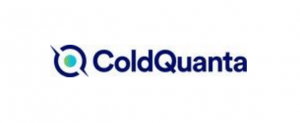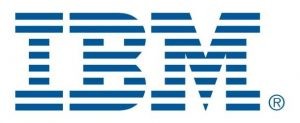Quantum News Briefs November 1: ColdQuanta announces $110 M Series B to continue commercializing quantum technology products; Rigetti Computing announces CEO leadership transition; A view that “US will struggle to stop China’s quantum leap” & MORE

Quantum News Briefs November 1 begins with the news that ColdQuanta has received $110 M Series B to continue commercializing quantum technology products; followed by Rigetti Computing’s announcement of a CEO leadership; third is an Asia Times article asserting that “US will struggle to stop China’s quantum leap”. Fourth today is the information about the $25,000 quantum startup pitch competition to be held by Quantum World Congress. + MORE.
*****
ColdQuanta announces $110 M Series B to continue commercializing quantum technology products
 ColdQuanta, today announced a $110 million Series B round of funding to continue commercializing the company’s product portfolio, including quantum computing, quantum algorithms and applications, atomic clocks, sensors, and components.
ColdQuanta, today announced a $110 million Series B round of funding to continue commercializing the company’s product portfolio, including quantum computing, quantum algorithms and applications, atomic clocks, sensors, and components.
Christopher Galvin, former Motorola chairman and CEO, has joined the company’s Board of Directors. Mr. Galvin is also now an investor in ColdQuanta. He brings decades of experience in commercializing ground-breaking research from the lab to the global market.
Led by LCP Quantum, investors included In-Q-Tel, Sumitomo Corporation of Americas, Breakthrough Victoria, BOKA Group Holdings I LP, and more. There was strong participation from existing investors, including Foundry Group, Global Frontier Investments, and Maverick Ventures. Click here to read today complete ColdQuanta press release about this funding
ColdQuanta transformed the company’s software capabilities with the acquisition of Super.tech, a world leader in quantum algorithms and applications. As a result of the acquisition, notable financial firms and national energy companies, in addition to Argonne National Laboratory, Berkeley’s Advanced Quantum Testbed (AQT), EPiQC, and Q-NEXT are leveraging Super.tech’s software to accelerate the value from today’s noisy intermediate-scale quantum (NISQ) era devices.
ColdQuanta has experienced rapid growth over the last several years, winning new subcontracts in Japan (Moonshot Research and Development Program) and Australia. Breakthrough Victoria has participated in this round to help establish an Asia-Pacific quantum computing and technology facility at Swinburne University of Technology headquarters, known as the ColdQuanta – Swinburne Quantum Technology Centre.
*****
Rigetti Computing announces CEO leadership transition
 Rigetti Computing, Inc., a pioneer in hybrid quantum-classical computing, announced October 31 that the Company’s Founder, Dr. Chad Rigetti, will be transitioning from his position as President and Chief Executive Officer to focus on advancing the Company’s products and technology. Quantum News Briefs summarizes the announcement.
Rigetti Computing, Inc., a pioneer in hybrid quantum-classical computing, announced October 31 that the Company’s Founder, Dr. Chad Rigetti, will be transitioning from his position as President and Chief Executive Officer to focus on advancing the Company’s products and technology. Quantum News Briefs summarizes the announcement.
As part of this next phase of growth, the Company will conduct a CEO search for Dr. Rigetti’s successor, and Dr. Rigetti will continue to serve in his current role until a successor is identified and assumes the position.
“Chad is a pioneer in the development and commercialization of quantum computers. His vision and leadership have been instrumental in bringing Rigetti to where we are today,” said Cathy McCarthy, Chair of the Company’s board of directors. “He has built a talented and highly capable team with strong and deep technical expertise to drive our business and technology. We thank Chad for his leadership and continued have been instrumental in bringing Rigetti to where we are today,” said Cathy McCarthy, Chair of the Company’s board of directors. “He has built a talented and highly capable team with strong and deep technical expertise to drive our business and technology. We thank Chad for his leadership and continued contributions to the Company going forward.”
“I’m incredibly proud of the accomplishments of our team over the past 9+ years,” said Chad Rigetti. “We’ve built the first dedicated quantum fab, brought some of the very first quantum computers to the market, and developed a strong and differentiated technology position. I believe the combination of our multi-chip superconducting processors delivered in our hybrid quantum-classical computing model can become the standard in quantum computing. I’m looking forward to continuing to advance our goal of delivering quantum advantage to customers in industries like finance, logistics, and national security.”
Click here for complete announcement.
*****
Asia Times: US will struggle to stop China’s quantum leap
One of China’s premier research institutes is expanding its efforts to achieve technological independence in the face of expanding US sanctions aimed at keeping China down. The Shenzhen Institute for Quantum Science and Engineering has established an Integrated Circuits and Electronics Centre to conduct R&D on integrated circuit (IC) design and specific quantum applications such as radio frequency control modules and cryogenic devices.
With regards to the People’s Republic of China (PRC), the department’s Bureau of Industry and Security (BIS) stated that:
“Eight technology entities based in the PRC are being added to the list as part of the Department of Commerce’s efforts to prevent US emerging technologies from being used for the PRC’s quantum computing efforts that support military applications, such as counter-stealth and counter-submarine applications, and the ability to break encryption or develop unbreakable encryption.”
Speaking to the Central Commission for Comprehensively Deepening Reform in early September, President Xi stressed the importance of mobilizing China’s resources nationwide to achieve breakthroughs in core technologies.
This is consistent with China’s 14th Five-Year Plan, which seeks to promote the development of integrated circuits, artificial intelligence, quantum computing and several other advanced technologies through 2025. Click here for Foster’s complete article.
Quantum World Congress is holding a $25,000 quantum startup pitch competition
 The Quantum World Congress is holding a pitch competition for startup or emerging company that’s utilizing quantum science and technology to develop solutions for the life sciences, biotech, or healthcare sector. Applicants have until November 9th at 11:59 PM Eastern Time to submit a pitch deck that has information on their company including a business summary, the value proposition, a go-to-market strategy and other information that will make the case why their company should be selected as a finalist. Approximately five to seven finalists will be invited to make the pitch live on November 29th at the Quantum World Congress event in Washington, D.C. A winner will be selected from the finalists to receive the $25,000 prize. For additional information and an application form, you can visit a web page about the pitch competition on the Quantum World Congress website here.
The Quantum World Congress is holding a pitch competition for startup or emerging company that’s utilizing quantum science and technology to develop solutions for the life sciences, biotech, or healthcare sector. Applicants have until November 9th at 11:59 PM Eastern Time to submit a pitch deck that has information on their company including a business summary, the value proposition, a go-to-market strategy and other information that will make the case why their company should be selected as a finalist. Approximately five to seven finalists will be invited to make the pitch live on November 29th at the Quantum World Congress event in Washington, D.C. A winner will be selected from the finalists to receive the $25,000 prize. For additional information and an application form, you can visit a web page about the pitch competition on the Quantum World Congress website here.
*****
IBM Quantum helping businesses prep for a quantum-powered future
Though quantum technology has been developing for some decades now, its emergence from laboratories to the market is gradually coming into existence with $35.5 billion in government and business investment globally. Karl Moore, a professor in the Desautels Faculty of Management, McGill University and an Associate Fellow at Green Templeton College, Oxford University for over 20 years, authored a Forbes article about IBM’s leadership in quantum computing October 31 and Quantum News Briefs summarizes below.
IBM Quantum, has been the leading innovator in the quantum computing ecosystem, according to Mooore. This emerging technology is progressively getting closer to radically transforming the world of business.
“It’s like science-fiction come to life,” says Scott Crowder, Vice President of IBM Quantum Adoption and Business Development. With $35.5 billion in government and business investment globally, the technology is bolstering, and its potential across industries is unprecedented.
IBM, which first announced its roadmap to achieving large-scale practical quantum computing in 2020 and delivered each of its targets on its timeline, currently operates more than 20 quantum computers, with its largest system at 127 qubits. According to Crowder, this represents more than could hold the world’s largest supercomputer.
Earlier this year, the company unveiled its updated roadmap which outlines plans for new modular architectures and networking, allowing its quantum systems to have up to hundreds of thousands of qubits.
Part of its main goals is to simplify the technology and guide business leaders in understanding quantum computing, so they may position themselves effectively to leverage its industry potential once the technology comes of age.
“Our industry partners are understanding what practices the technology will have and building their skills to get there,” says Crowder.
“Industry is engaging with us today because they see that this computational method could have massive impacts to them in reducing their cost, time, or to develop new materials,” he says. “All of that has direct applicability for climate change.”
However, diversity issues persist in this field and the talent shortage may be a barrier to a quantum breakthrough. The World Economic Forum’s State of Quantum Computing: Building a Quantum Economy recent report reveals a quantum skills shortage despite the global excitement over the technology’s possibilities.
*****
Sandra K. Helsel, Ph.D. has been researching and reporting on frontier technologies since 1990. She has her Ph.D. from the University of Arizona.


























